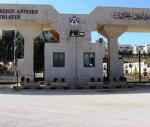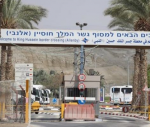You are here
Elections between tribalism and political parties
Aug 04,2024 - Last updated at Aug 04,2024
The parliamentary elections in Jordan are an important political event that reflects the social and political dynamics in the country. These elections are characterized by the intertwining of tribal and partisan dimensions, making them the focus of constant interest and analysis.
Jordan has witnessed continuous development in the electoral system since its establishment. Over time, new challenges have emerged, most notably the balance between tribal loyalty and party activity. Historically, tribes have played a major role in Jordanian politics, as the tribe provided a strong support base for candidates, enhancing their chances of winning parliamentary seats.
Tribalism plays a pivotal role in Jordanian elections, as the tribe is considered the basic social unit on which candidates rely to gain votes. Tribal power is linked to the extent to which a candidate can achieve the interests of his tribe members, whether at the local or national level. This system strengthens personal loyalties and weakens political parties that find it difficult to build broad popular bases outside the tribal framework.
Jordanian tribalism plays a social and political role and is not just an electoral phenomenon, but rather an integral part of the country’s social and political structure. Tribalism organizes its lives according to strict rules and traditions that maintain social cohesion and help resolve internal conflicts. In elections, tribes exploit these strong ties to provide support to their candidates, making them an undeniable force in the political arena. Tribalism plays a dual role in Jordanian elections. On the one hand, it provides a strong and stable support base for candidates, which enhances their chances of winning. On the other hand, this phenomenon hinders progress towards a more institutionalized party system, where priority remains for the tribe at the expense of political and development programs. Political parties find it very difficult to compete with tribal candidates, especially in rural areas where tribal loyalties are more deeply rooted. Tribalism does not necessarily mean a decline in democracy; rather, it often reflects the strong social and cultural ties in Jordanian society. However, there are critics who suggest that this phenomenon hinders progress towards a more institutionalized party system. Tribal loyalties weaken the ability of parties to build broad popular bases based on political and economic programs rather than personal loyalties.
Achieving a balance between tribalism and partisanship is one of the most important challenges facing the Jordanian electoral system. Jordan needs an electoral system that enhances the role of political parties without excluding tribes, but rather by integrating them into the democratic process in a more structural way. This can be achieved by enhancing political awareness among citizens and providing awareness programs that support the idea of active citizenship. Electoral reforms can contribute to improving this balance, such as adopting an electoral system that ensures greater representation of parties and encourages them to form broad alliances that transcend tribal boundaries. In addition, the role of parliament in oversight and legislation must be strengthened, making it an institution with a real impact on public policy.
Finally, tribalism remains a pivotal element in Jordanian elections, with its advantages and disadvantages. While this phenomenon strengthens social ties and provides a strong support base for candidates, it also hinders progress towards a more institutionalized party system. Achieving a balance between tribalism and partisanship requires continuous efforts from all concerned parties, including the government, political parties, the tribes themselves, political parties, and civil society. The goal is to reach an electoral system that expresses the aspirations of all components of Jordanian society and achieves sustainable development and more just democratic progress to express the aspirations of all components of Jordanian society and reflect their will in making public policies and decision-making.
The author is professor of Strategic Studies - Al-Hussein Bin Talal University













Add new comment